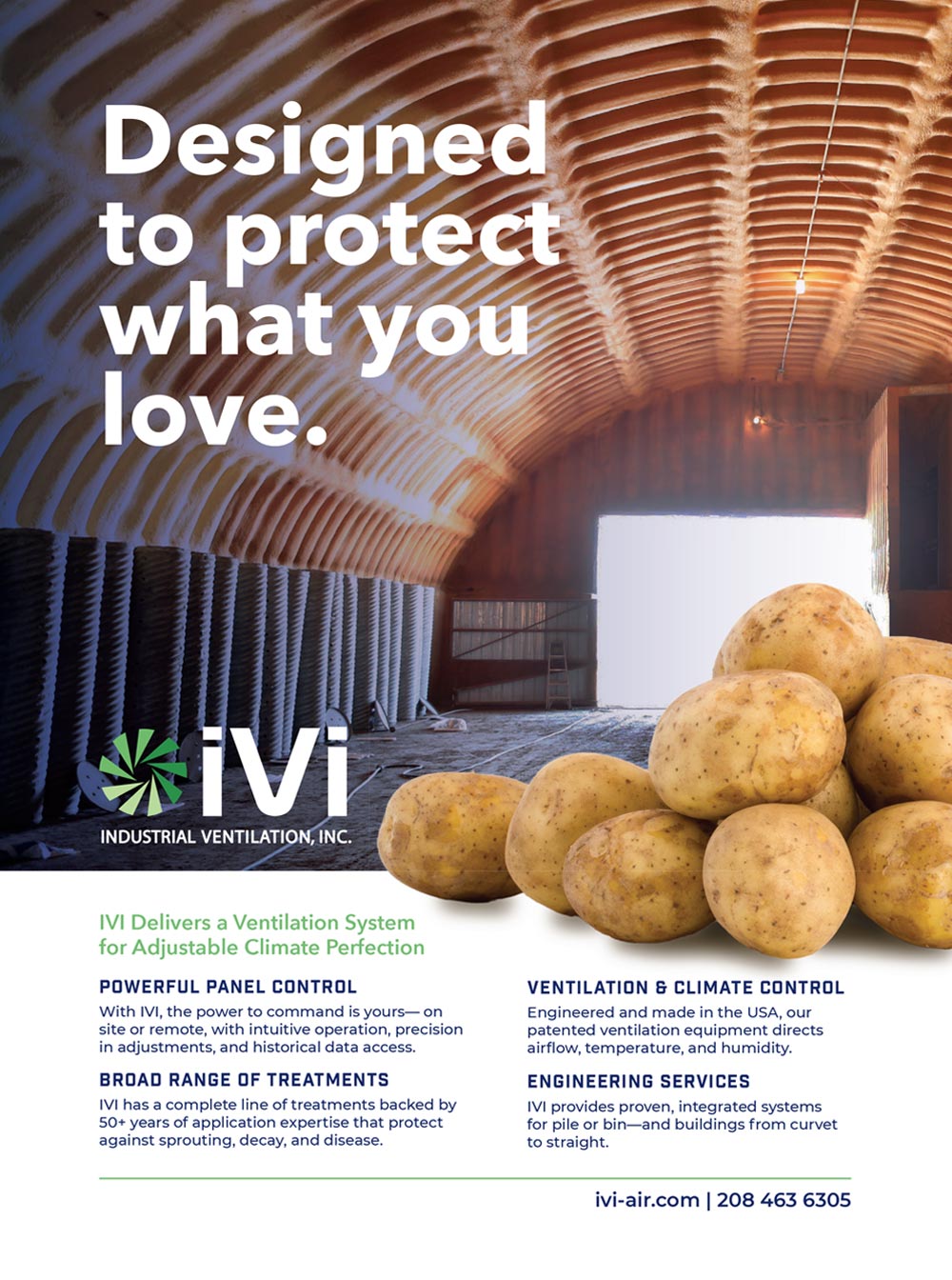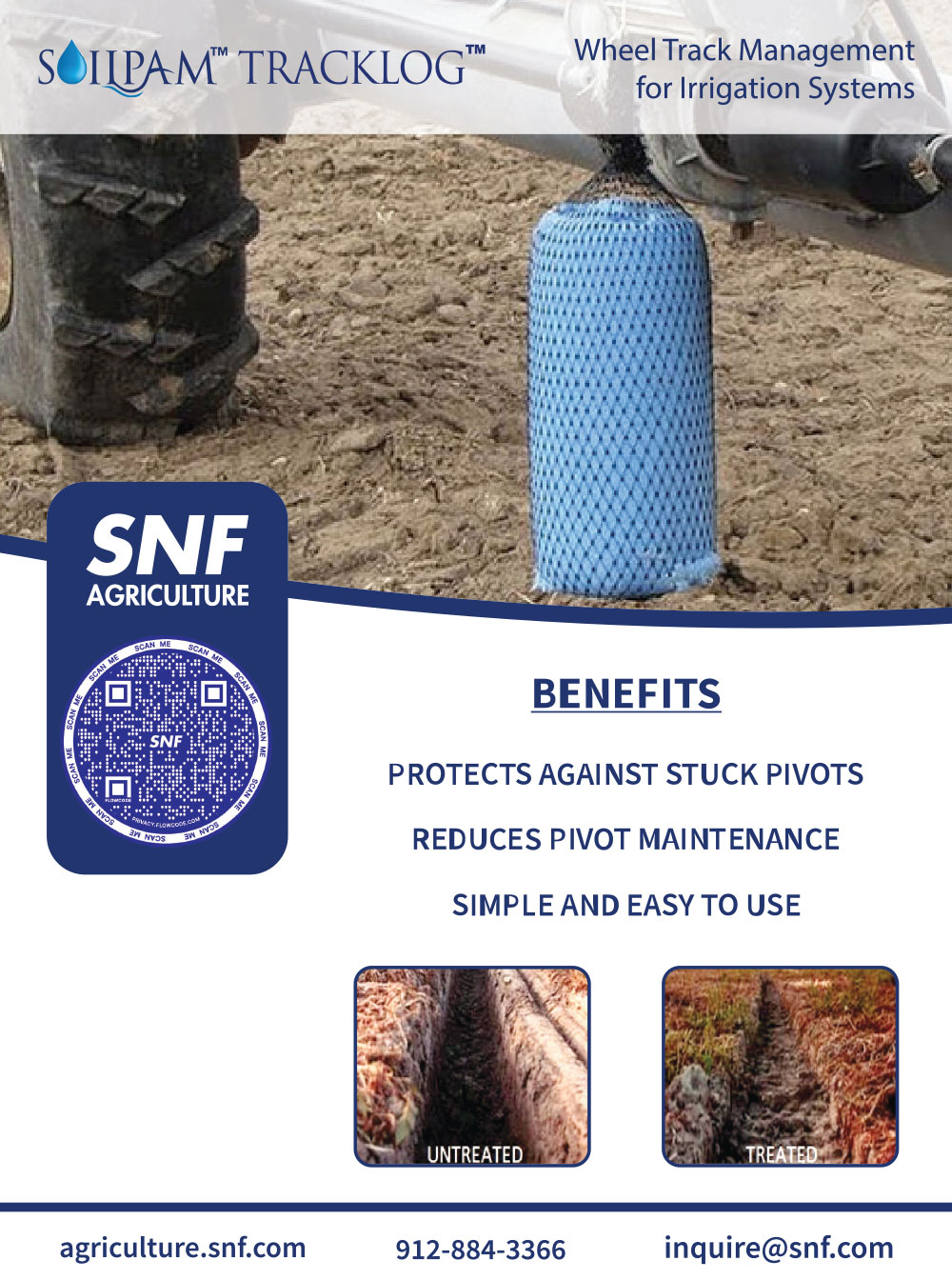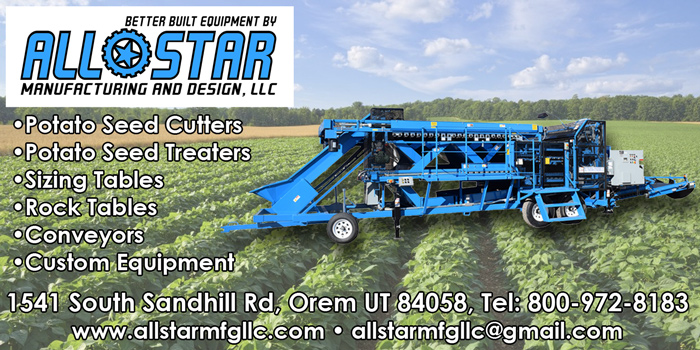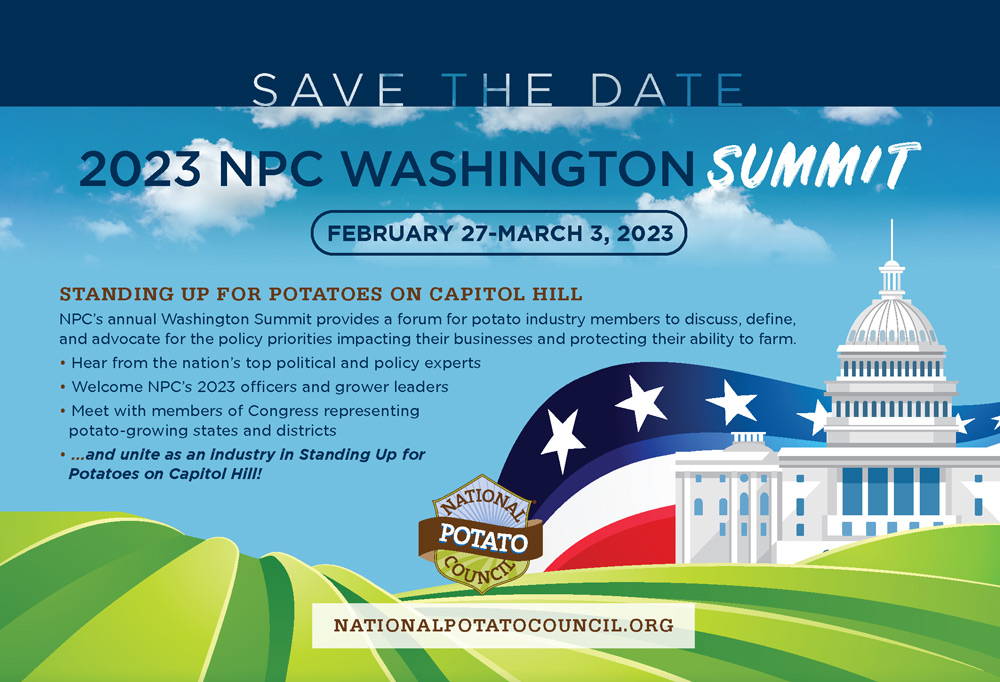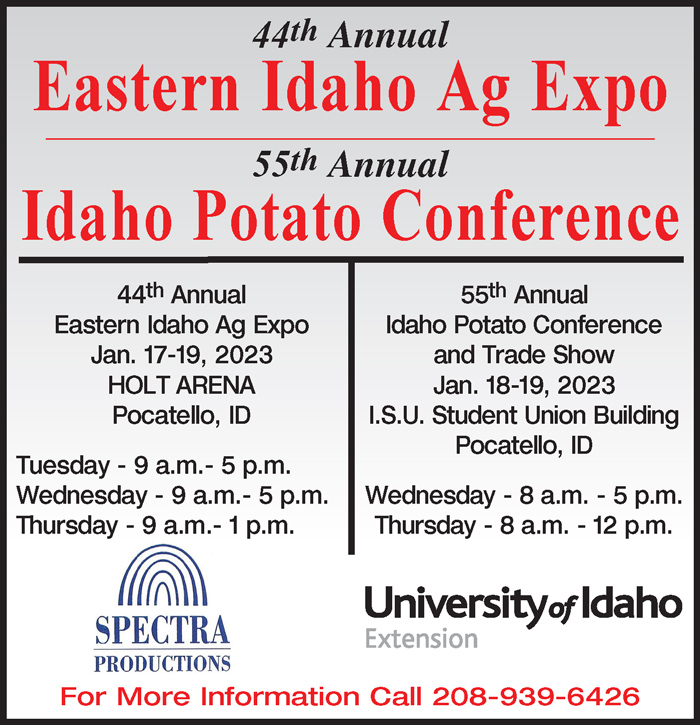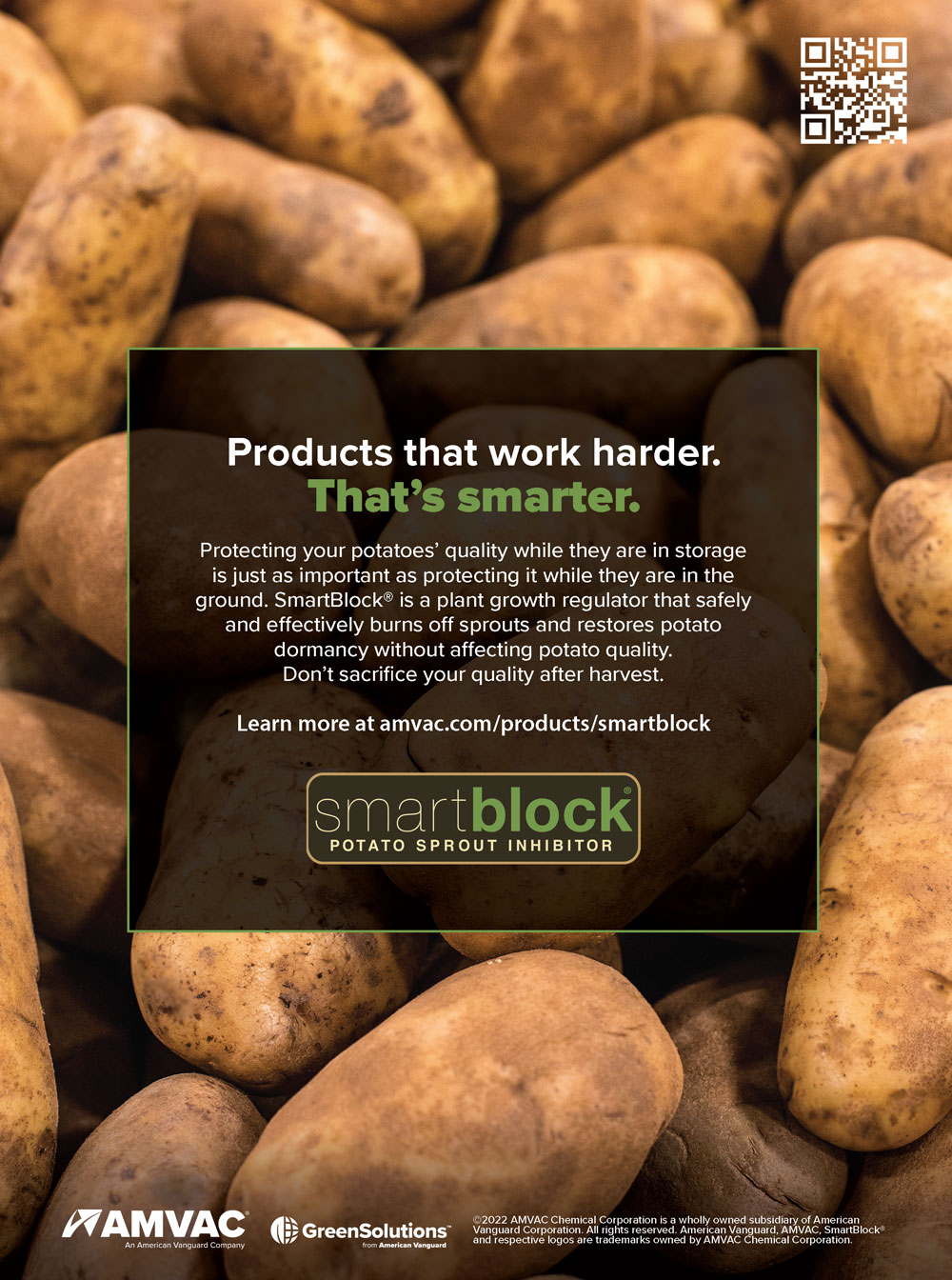
How are your potatoes doing now that they’re in storage? Here are tips to check.
How Are Your Potatoes Soing Now That They’re in Storage? Here Are Tips to Check.

Subscriptions:
U.S. and Possessions $24.00 per year, International $120.00 per year. To subscribe call (800) 638-0135
Copyright 2022
Harris Publishing Inc.
All rights reserved.
Reproduction in whole or in part without permission is prohibited. Back issues available at $5 per copy. Limited quantities. Publisher not responsible for content of materials submitted.
Jason Harris
Vice President
Chuck Harris
Vice President
Ryan Harris
Treasurer
Clayton Ward
Secretary
Janet Chase
Canadian Publisher’s
Agreement No. 40606038,
Customer No. 7004671.
Mailed under a standard rate
mailing permit at Idaho Falls,
Idaho, and at additional
mailing offices.
Also Publishers of
Sugar Producer
Darryl Harris
Corporate Offices:
HARRIS PUBLISHING INC.
520 Park Avenue
Idaho Falls, ID 83402
(208) 524-7000
Fax (208) 522-5241
www.potatogrower.com

Jason Harris
Editor
Lane Lindstrom
lane@potatogrower.com
Advertising Director
Rob Erickson
rob.erickson@potatogrower.com
Account Executive
Kevin Malcom
kevin@potatogrower.com
Group Secretary
Shantelle Stewart
Production
Janet Chase
Graphic Artists
Janet Chase
Lavon Horne
Circulation
Chuck Harris
IT Department
Chuck Harris
Accounting
Clayton Ward
(202) 682-9456
www.nationalpotatocouncil.org
POTATOES USA
(303) 369-7783
www.potatoesusa.com
UNITED POTATO GROWERS OF AMERICA
(801) 266-5050
www.unitedpotatousa.com
ALLIANCE FOR POTATO RESEARCH & EDUCATION
www.apre.org
POTATO ASSOCIATION OF AMERICA
(734) 239-8022
www.potatoassociation.org
INTERNATIONAL POTATO CENTER
www.cipotato.org
Irrigation Show
Las Vegas Convention Center
Las Vegas, NV
www.irrigation.org/2022show/
Dec. 6-8
Great Lakes Fruit, Vegetable & Farm Market Expo
DeVos Place Convention Center
Grand Rapids, MI
www.glexpo.com
Jan. 4-5, 2023
Potato Expo 2023
Gaylord Rockies
Aurora, CO
www.potato-expo.com
Jan. 4-6, 2023
Dakota Farm Show
University of South Dakota DakotaDome
Vermillion, SD
www.dakotafarmshow.com
Jan. 6-11, 2023
American Farm Bureau Convention
San Juan, Puerto Rico
www.fb.org
January 10-11, 2023
Maine Potato Summit
Northern Maine Community College
Presque Isle, ME
Mainepotatoes.com
Jan. 18-19, 2023
Idaho Potato Conference
Idaho State University
Pocatello, ID
www.uidaho.edu/cals/potatoes
Washington-Oregon Potato Conference
Three Rivers Convention Center
Kennewick, WA
www.potatoes.com/potatoconference
Feb. 7-9
Wisconsin Grower Education Conference & Industry Show
Holiday Inn Hotel & Convention Center
Stevens Point, WI
www.wisconsinpotatoes.com
Feb. 16, 2023
Miller Research Potato Pest Management Seminar
Historic Wilson Theater
Rupert, ID
Millerresearch.com
Feb. 22-23, 2023
International Crop Expo
Alerus Center
Grand Forks, ND
www.cropexpo.com
Feb. 27-March 3
NPC Washington Summit
Marriott Metro Center
Washington, DC
www.nationalpotatocouncil.org
March 19-21, 2023
SNAXPO
Gaylord Palms Resort & Convention Center
Orlando, FL
www.snaxpo.com
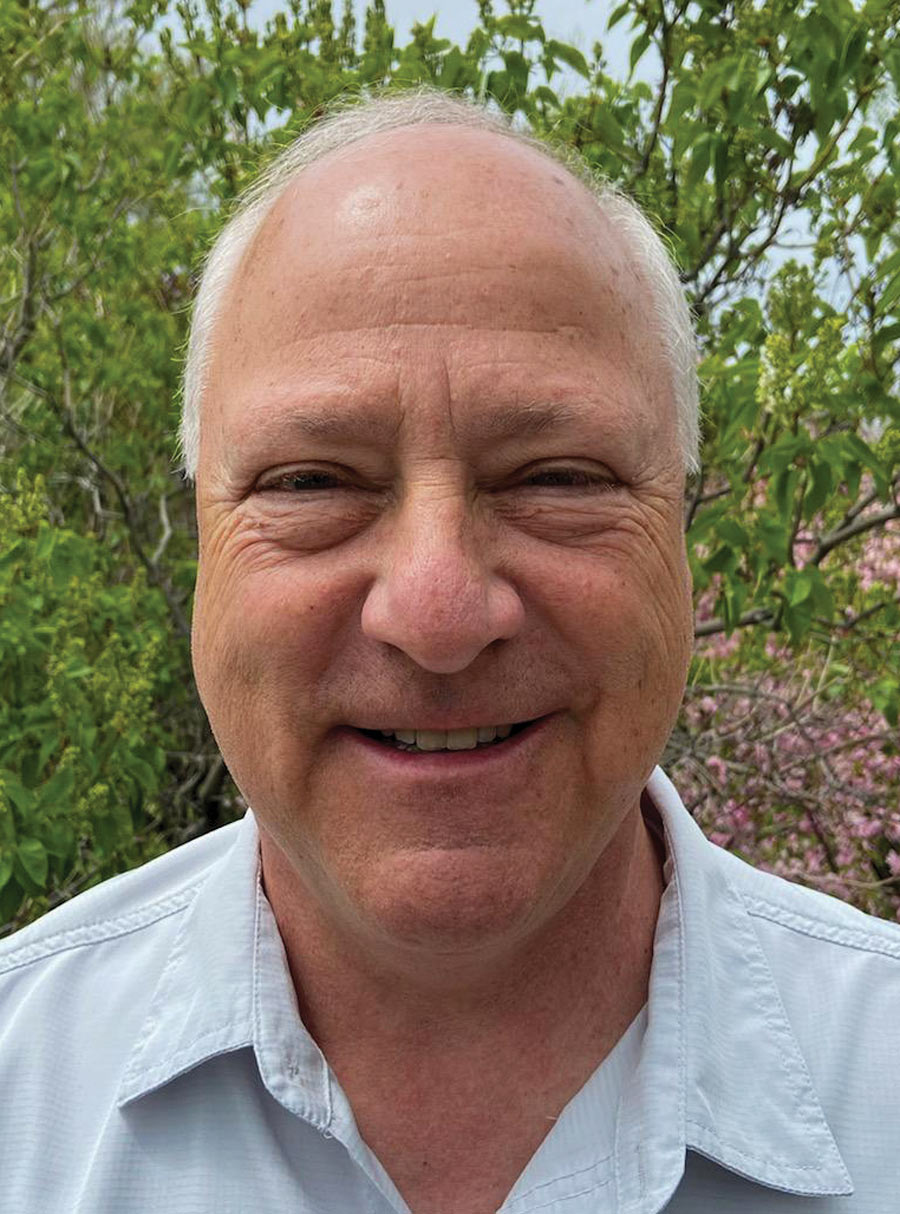
I have lots of favorite The Far Side cartoons. One of my favorites is one that fits my mood as of late. I would like to reprint it here so you can get the full effect but, you know, with copyright laws and all, I would perhaps be writing my next column from a jail cell.
So picture this. A student is raising his hand in a school class and says to the teacher, “Mr. Osborne, may I be excused? My brain is full.”

With this new API integration, Fusionware simplifies data acquisition for farm managers, agronomists, and data analysts. This new integration enables Fusionware to sync on-farm data seamlessly. Regarding machine assets, Fusionware can easily track data from the John Deere Operation Center for total run-time, idle time, and location. For precision ag metrics, this data includes acres planted by field, seed spacing, and harvest data that syncs John Deere’s data sets directly with Fusionware.
Fusionware’s focus since 2020 has been to optimize the entire farming operation by minimizing duplicate input into multiple systems.

National Potato Council Welcomes New Program Coordinator
The National Potato Council (NPC) has welcomed new Program Coordinator Madeleine Poulin to assist the council as it promotes the interests of U.S. potato growers, their families, and the rural communities they support.
“Madeleine will be a tremendous addition to the team,” said Kam Quarles, NPC CEO. “As a recent college graduate with a passion for the agriculture industry, she brings a fresh perspective and vision to the organization as we continue to stand up for America’s potato growers on Capitol Hill.”
A 2022 graduate of Elon University in Elon, North Carolina, Poulin earned a Bachelor of Arts degree in environmental and sustainability studies and policy studies, with a concentration in sustainable food production. In 2021-22, she interned at the university’s student-run Loy Farm and Garden, where she gained hands-on experience in farming and business management. Through her coursework, Poulin also visited farms in North Carolina and spoke with farmers about their experiences, needs, and challenges.
Consideration in Process of Potato Storage
By Ben Ingalls P.E.
As harvest equipment and growers become faster and more efficient at loading storages, it’s essential for ventilation systems to keep up. Faster loading time results in greater heat load per day being put away than ever before. Between field heat and heat of respiration it is critical the ventilation system can keep up to ensure a successful start to a long storage season. This additional heat is compounded by the current trend of increasing ambient temperatures during harvest (Figure 1). Current storage designs offer storage managers more tools than before but how do we best use them?
Removing field heat more quickly has another benefit – disease management. As Nora Olsen, Mike Thornton, and Phil Nolte have described in the article, Harvest Temperature Consequences, when pulp temperatures are warm, the chance of potatoes becoming infected with Pythium dramatically increases. Additionally, pink rot can develop if inoculum is present. The article goes on to describe how proper airflow is essential to addressing these issues. Other articles such as Diagnosis and Management of Potatoes Storage Diseases, also by Nora Olsen, Jeff Miller and Phil Nolte, explains how cooler temperatures in storage reduce and slow the spread of disease. This will only be possible if the field heat can adequately be removed.
Eastern Idaho’s Bench Mark Potatoes Moves Into New Digs
Gives company more room to operate
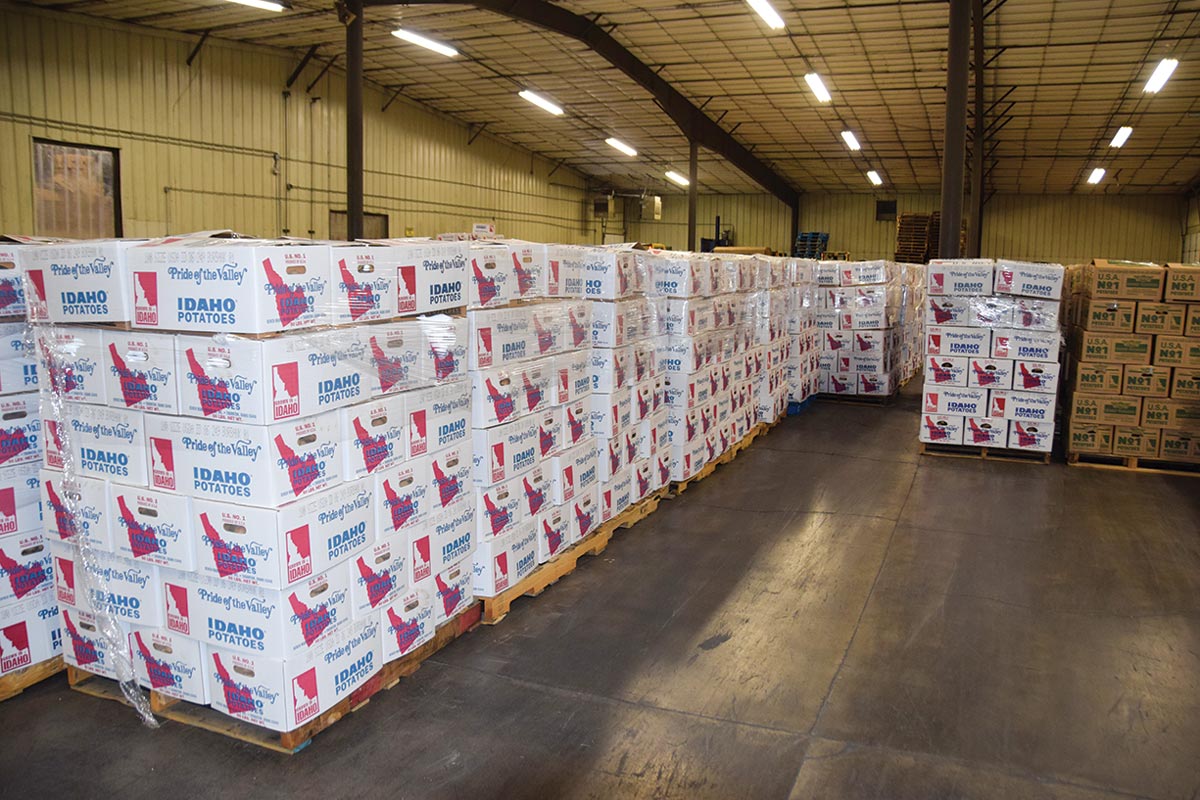
In its new facility, Bench Mark Potatoes can store enough potatoes from one shift as they wait to be shipped out.
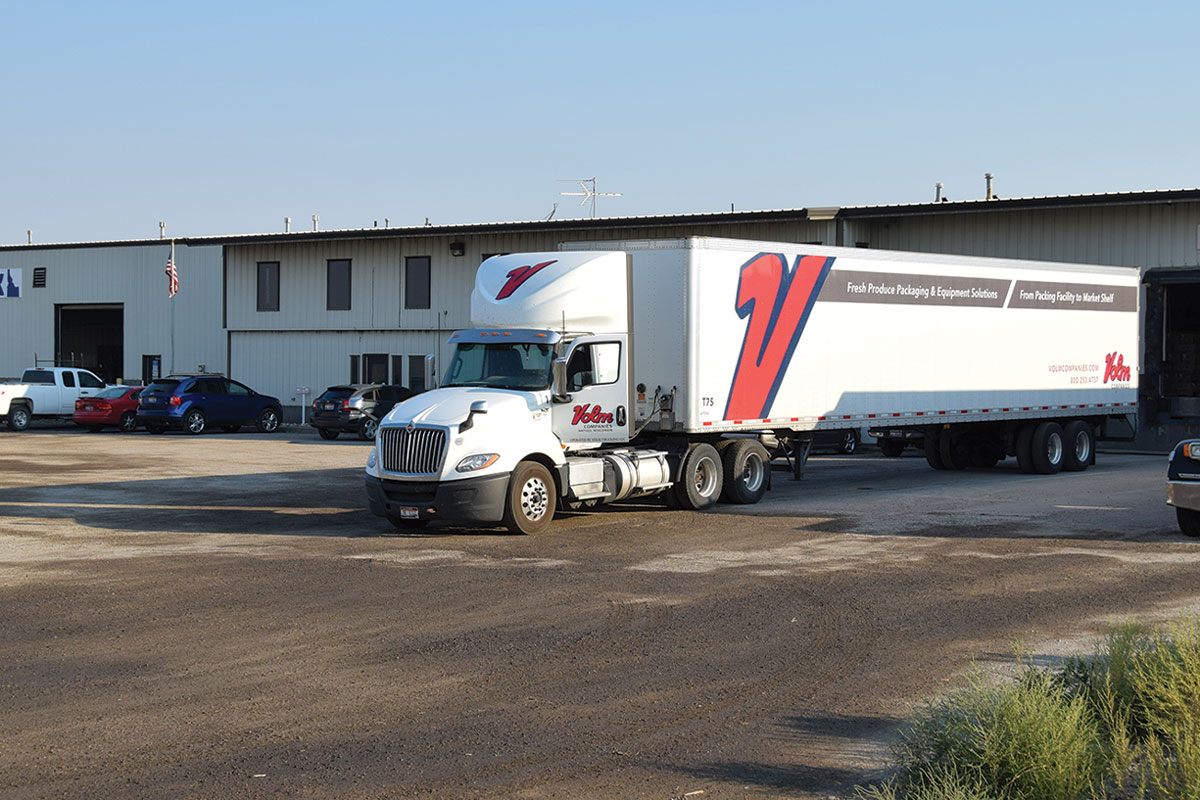
Bench Mark potatoes moved from its Thornton, ID, location 3.8 miles north to a newer facility in Rexburg. Bench Mark owners bought the facility from High Country Potato.
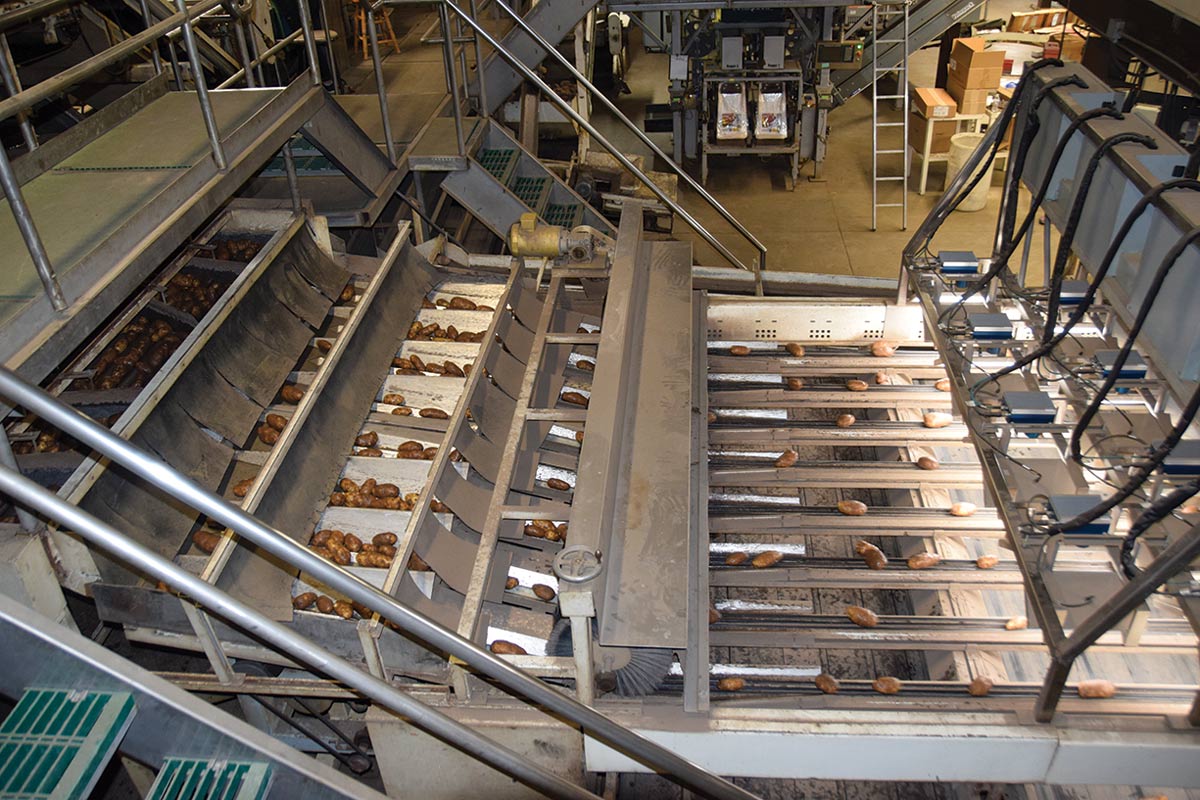
Kent Sutton said having automated systems not available in Bench Mark’s previous location allows the company to sort and pack as many potatoes in one shift as they used to pack in a day and a night shift before.
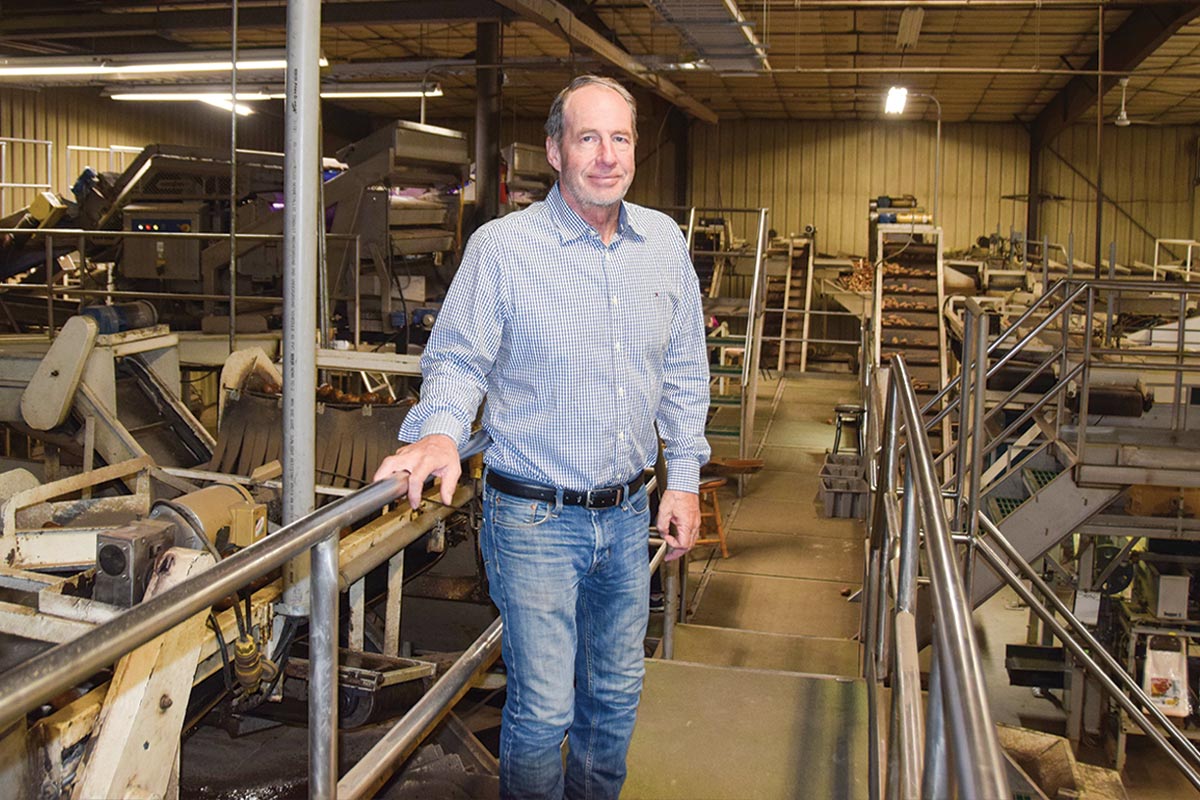
Kent Sutton is one of five growers who own Bench Mark Potatoes. He also serves as general manager the facility, which is now located in Rexburg, ID.
After packaging and shipping famous Idaho potatoes for 30 years from a warehouse in Thornton, ID, Bench Mark Potatoes moved to a new location in Rexburg, ID, this summer after buying out High Country Potato from the Cornelison family.
Bench Mark, owned by a group of five eastern Idaho growers, had been operating in the aging Thornton location, which was built in the 1930s and was an easily recognized landmark just off U.S. Highway 20. Bench Mark’s new location at 900 University Blvd. was built in 1989.
The owners include Kent Sutton and Lee Sutton from Sunnydell, ID; David Schwendiman and Stan Schwendiman from the Rexburg/Newdale area; and Lee Miller, who farms in the Egin/Parker area. Kent Sutton also serves as the general manager of Bench Mark. Bench Mark operates as a fresh pack facility with company labels including Pride of the Valley and Farm Fresh, getting its potato supply from its grower-owners.
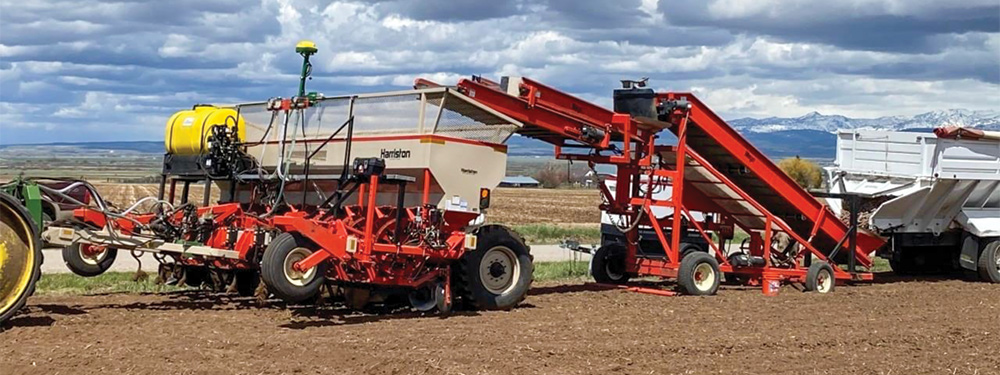
The Mayo Telescoping Loader quickly fills the planter to complete the efficient planting operation for more acres per day. This high-capacity loader is very durable with a variety of uses including transloading, short-term piling and truck loading. Options include wireless remote control. A very versatile machine for your operation.
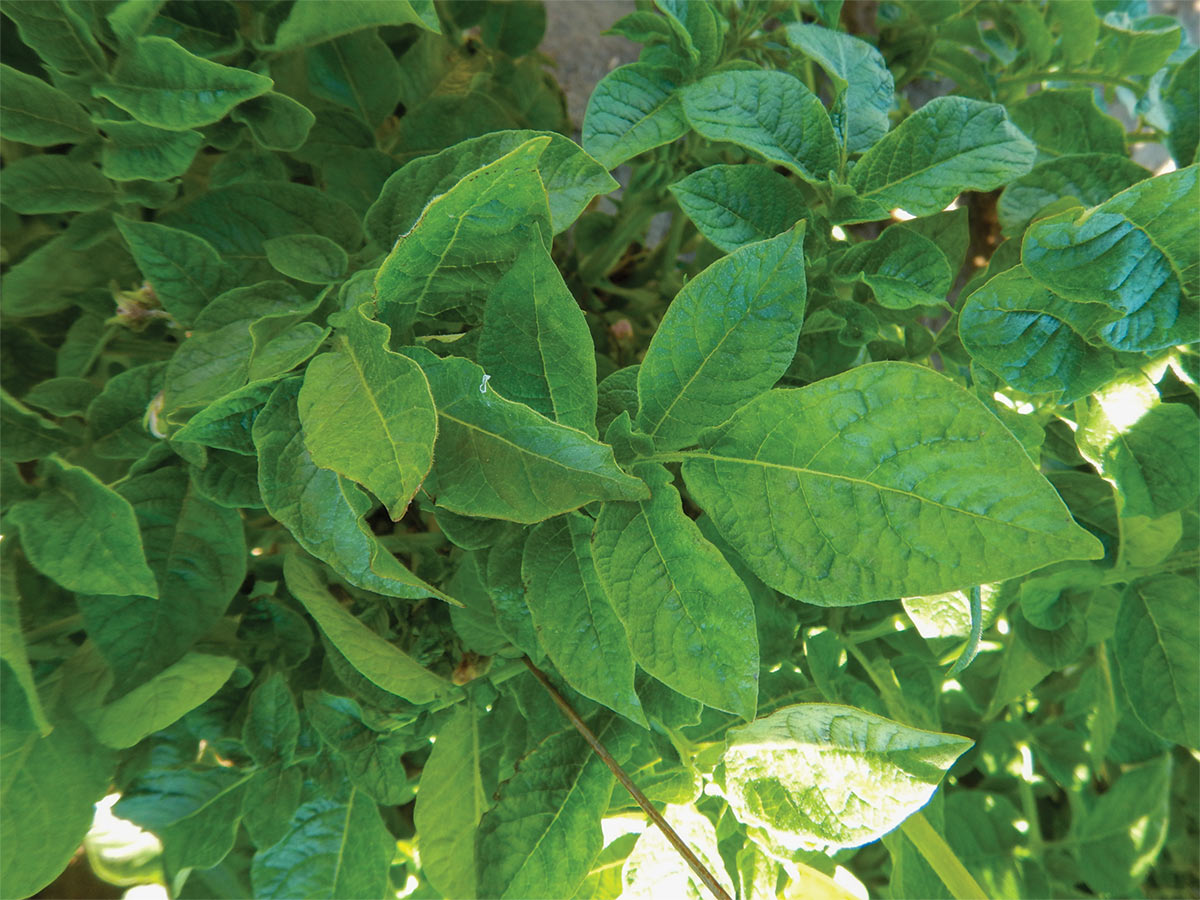
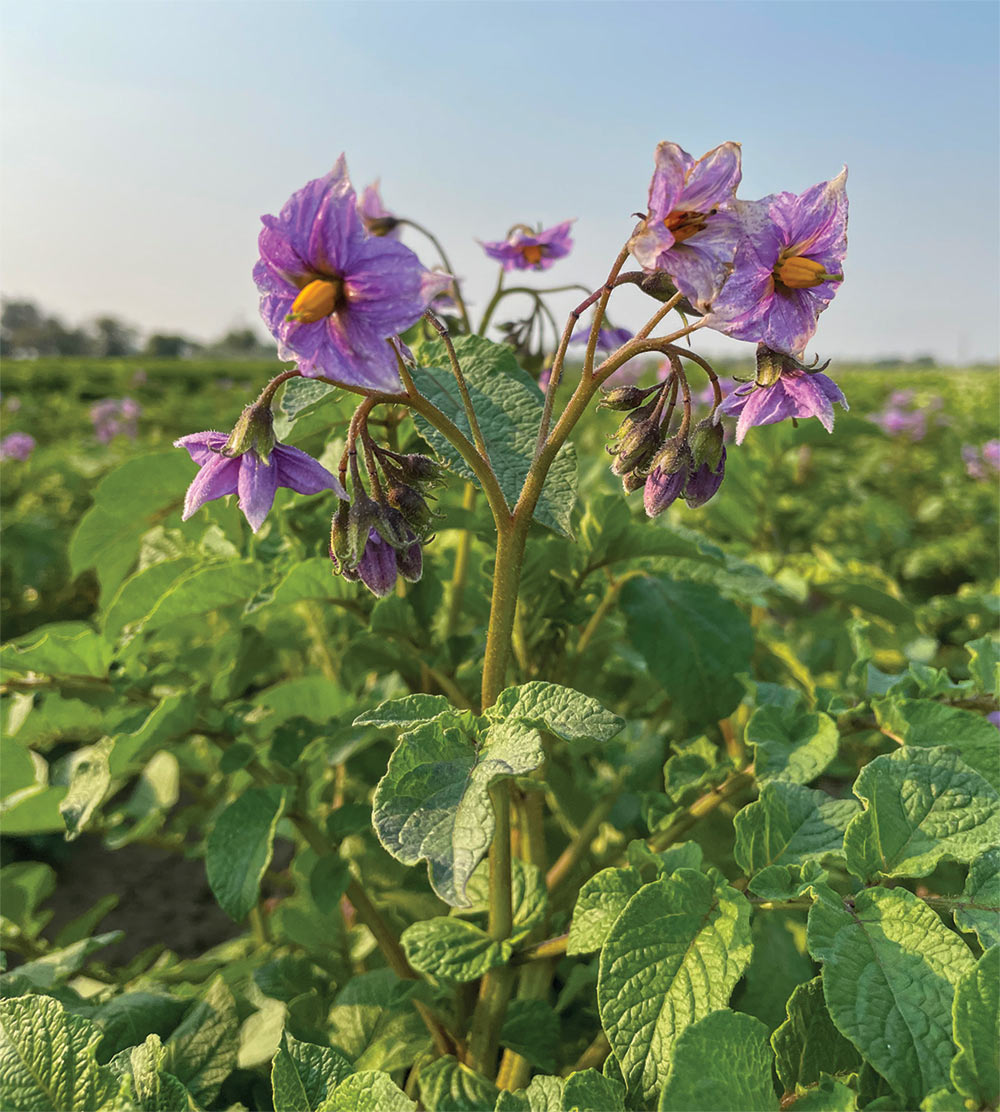
No single strategy consistently reduces PVY incidence from year to year or location to location. As a result, current recommendations are to incorporate multiple tactics. In this article, one of several recommended strategies — use of a crop border — is discussed.
Understanding how PVY is moved is the first step to devising strategies to manage it. PVY is acquired from infected plants and transmitted to healthy ones by aphids. Dozens of aphid species are capable of vectoring PVY, and they do so in a non-circulative, stylet-borne (and non-persistent) manner. Furthermore, an aphid can pick up PVY particles on its mouthpart (stylet) quickly while it probes infected plants in its search for a plant on which it can feed. The virus particles are then rapidly released from the aphid’s stylet as the aphid moves to a new plant and continues to probe. The entire process of taking up the virus from an infected plant and transmitting it to a healthy one can take less than a few minutes, before insecticides can kill the aphid.
With this acceptance, the Teton Russet becomes the ninth variety of potato to be used by McDonald’s in North America.
“We’re proud to add the Teton Russet to our short list of potato varieties used to make one of our customers’ favorite menu items – our World Famous Fries,” says Daniel Roche, McDonald’s Global Quality System Manager, Agricultural Products. “All our potatoes meet a set of strict standards for everything from size and shape to varietal, color and storability – and the Teton Russet has proven to produce golden, crispy fries with a fluffy baked potato inside and our unique signature flavor that our customers love.”
The Teton Russet has already begun rolling out to suppliers/restaurants as early as August as harvest began in the Pacific Northwest.
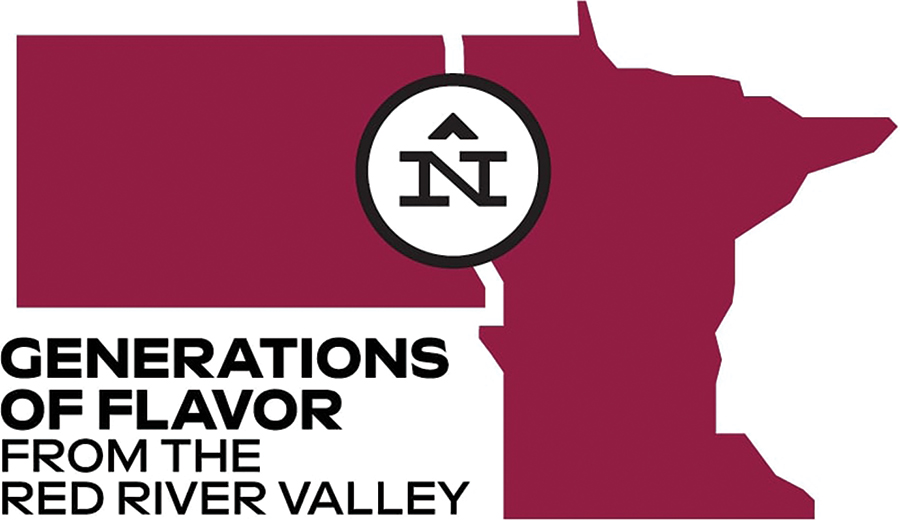
The organization represents Red River Valley potato growers with a purpose of development and promotion of quality potatoes and potato products. These growers combined, raise over 80,000 acres of process (fry), chip, fresh and seed potatoes in North Dakota and Minnesota.
In partnership with Ten Acre Marketing, a Grand Forks-based agricultural marketing consulting firm, the name and design of the grower organization was reimagined. The primary logo mark features a red N encircled with a small carrot arrow pointing up, indicating north on a compass. The secondary mark further supports this image and includes the state outlines of North Dakota and Minnesota, and well as the new tagline: Generations of Flavor.
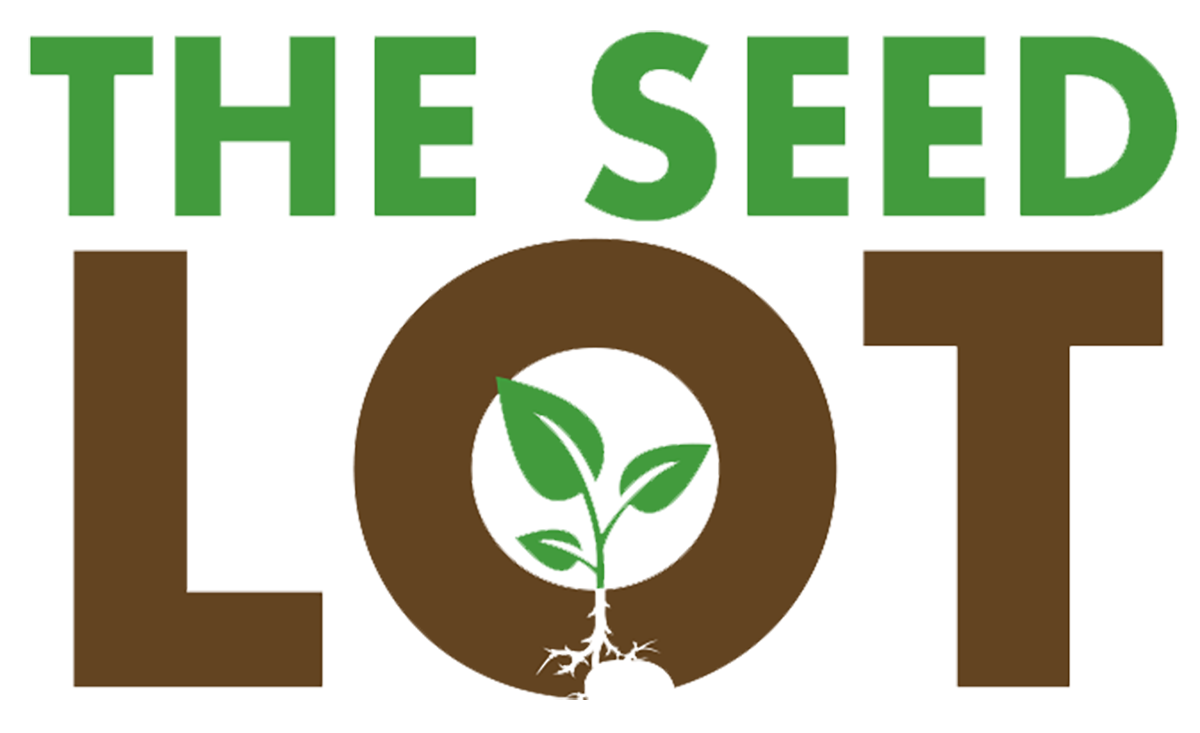
The Potato Grower Seed Lot is where you will find seed producers from Manitoba to Maine, from Montana to Michigan—all conveniently gathered in one place.
If you’re a seed grower interested in being a part of The Seed Lot, call Kevin at (208) 542-2237.

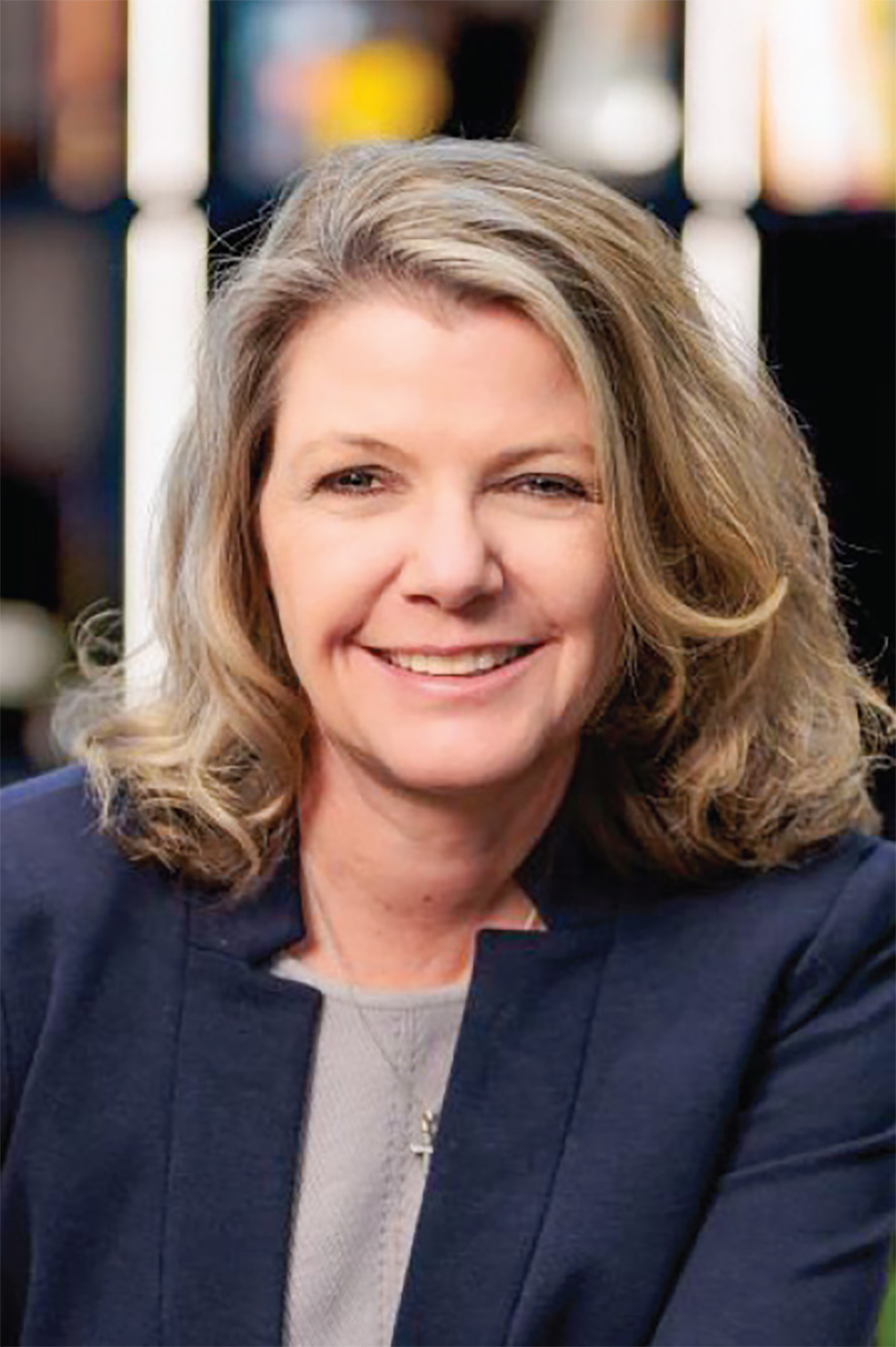
Foodservice Sales Drove U.S. Potato Utilization Growth Of 2.1 Percent
This past year, the utilization of U.S.-grown potatoes increased by 2.1 percent (683 MM lbs.) during July 2021-June 2022 (FY22), bolstered by the foodservice channel. This growth is a strong indicator that the foodservice sector is recovering from the impacts of the pandemic.
Utilization shows the share of potatoes sold, by form (fresh, processed, dehydrated), from the domestically grown crop. All data is calculated using a fresh weight equivalent measurement to ensure we understand what happens to the total crop regardless of how the potato is used after harvest.

This year EPA participants (many of whom were new hires during COVID) were provided information on pest management related to growing seed and in the pre-plant, planting, in-the-field, and post-harvest stages. They had the opportunity to spend time in the fields and in the facilities where their decisions will be implemented with all the potential consequences, both negative and positive, that may result. Presenters included growers, extension educators and researchers from across the country on weeds, pathogens, nematodes and insects.
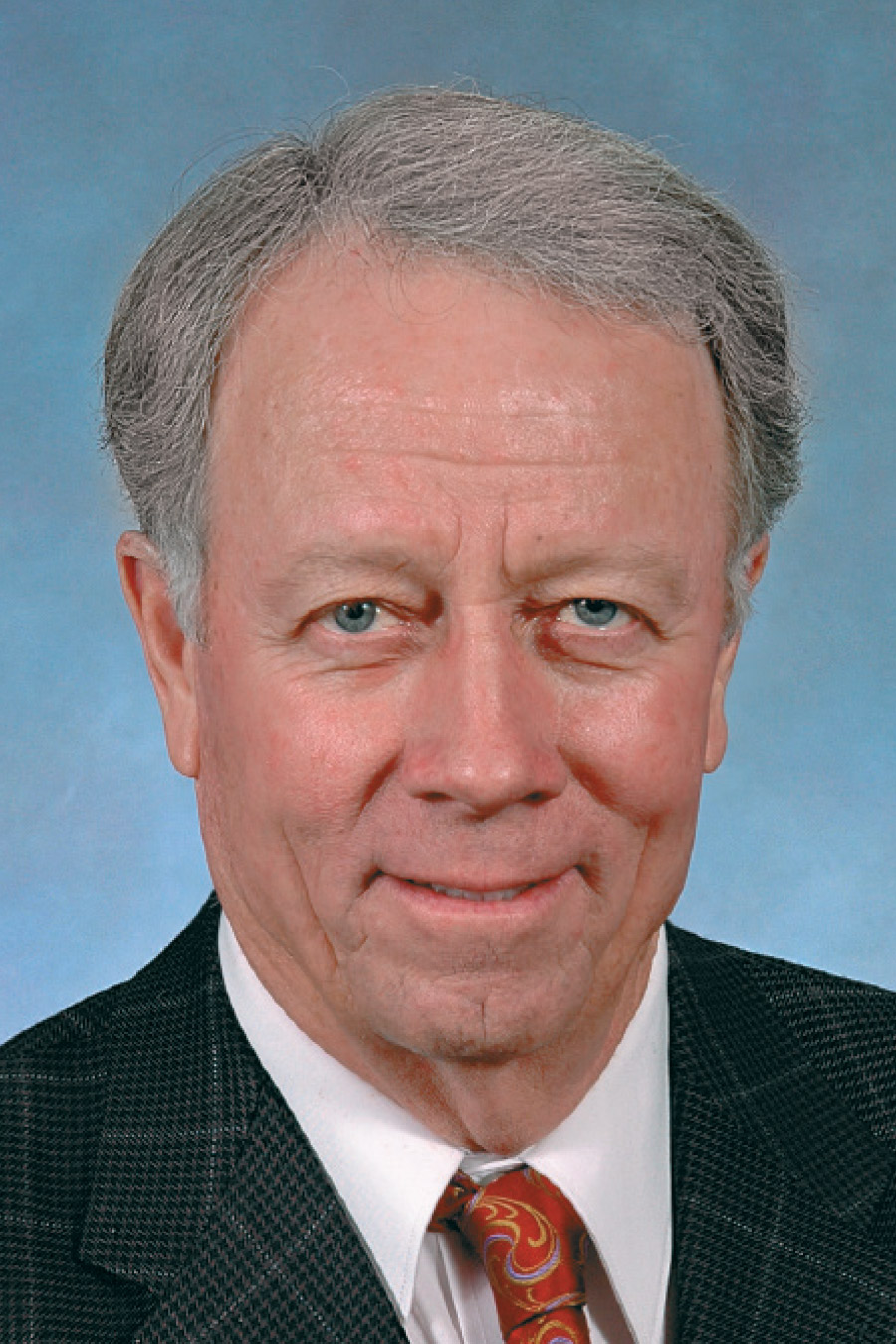
Today, potato producers are in a battle against chaotic economic circumstances. Whatever the source of this chaos, whether politicians, economists, or global influences, economic chaos rules the day. These are some of the most challenging economic times people in business today have ever faced. Navigating this unpredictability is a serious matter. How to succeed from now until calm returns is the challenge, and calm is not just around the corner.
Recent legislation makes clear that most politicians have learned nothing from previous mistakes.


